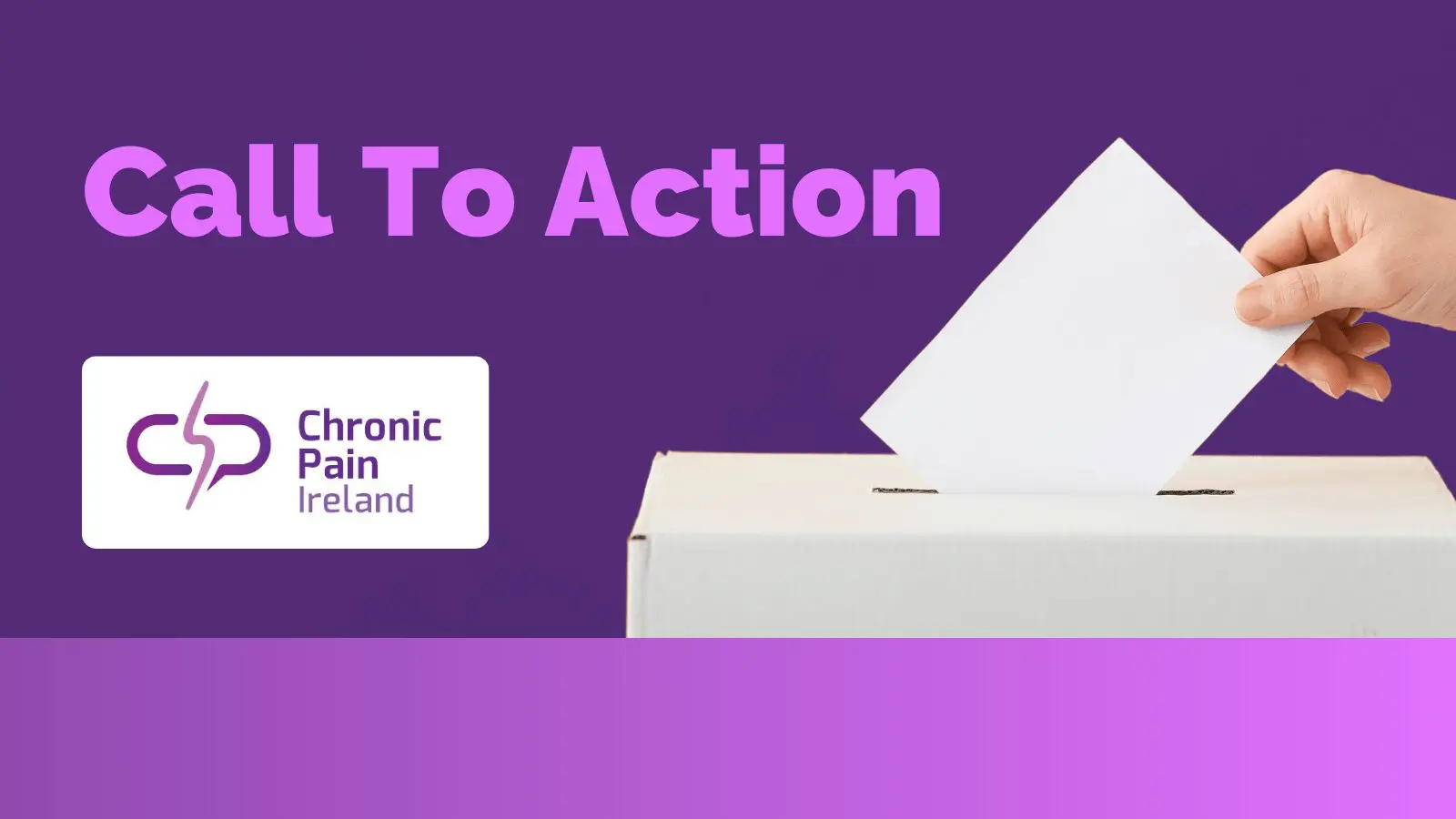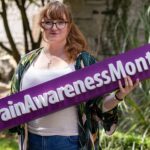Chronic Pain Ireland General Election Call for Action 2024
With between 663,000 and 1,836,000 people in Ireland living with chronic pain, it’s crucial that our health system, political leaders, and local representatives work together to address this often invisible disease. Chronic Pain Ireland’s election 2024’s call to action is designed to bridge the gap between the chronic pain community and the candidates seeking your vote.
Our members will have questions for candidates which we hope will help them understand some of the challenges faced by people living with chronic pain and commit to implementing tangible policy changes. From expanding access to pain management clinics to securing funding for non-medication therapies and ensuring comprehensive pain education, these questions guide candidates toward addressing some of the issues impacting the chronic pain community.
This initiative is for both candidates and the chronic pain community, encouraging open dialogue and a strong connection between voters and their representatives. Together, we can work towards a more inclusive and supportive healthcare system for everyone affected by chronic pain.
Key Areas of focus for those living with chronic pain
1. Increase Number of Chronic Pain Clinics and Multidisciplinary Teams (MDTs)
Support for expanding chronic pain clinics and MDTs nationwide, with specialists including pain management consultants, mental health professionals, physiotherapists, and occupational therapists.
- Current Gaps: Ireland has 27 pain consultants in the public health system, with a ratio of 0.55 consultants per 100,000 people, far below the target of 1 per 100,000 recommended for quality pain management are only five Pain Management Programmes (PMPs), with some regions having no local PMP access. The wait time for first time appointments can be years, the wait time between appointments can be months, this needs to be addressed.
- Expected Impact: Expanding MDTs can reduce wait times, improve outcomes, and address health inequalities for patients who currently face barriers due to travel and limited local services.
2. Implement ICD-11 for Chronic Pain Recognition
- Ensuring a timeline for the implementation of the ICD-11 system, which for the first time includes chronic pain as a recognised diagnosis, is supporting better data collection, resource allocation, and treatment development.
- Why This Matters: ICD-11 allows for chronic pain to be accurately tracked, enabling more precise epidemiological data and facilitating better healthcare planning and policy decisions that are specific to chronic pain needs.
- Expected Impact: With ICD-11 implementation, Ireland can improve chronic pain data collection, justifying the need for targeted funding and comprehensive support services.
3. Establish a National Registry for Chronic Pain
- Support for funding of a national registry to track chronic pain cases, treatments, and outcomes, helping to guide policy and resource allocation.
- Why This Matters: Ireland lacks a central database for chronic pain, limiting the ability to identify gaps, monitor patient outcomes, and develop evidence-based policies.
- Expected Impact: The registry would provide data needed for effective healthcare planning and improvement, leading to better-targeted services and resources for chronic pain management.
4. Universal Medical Card Access for Chronic Pain Patients
- Revise the Medical card eligibility and make available for all diagnosed chronic pain patients to cover necessary treatments and therapies without financial strain.
- Why This Matters: Medical card access would alleviate financial stress for chronic pain patients, many of whom face significant costs for ongoing treatment. Currently, limited access to medical cards can prevent patients from receiving timely and comprehensive care.
- Expected Impact: Access to medical cards would reduce out-of-pocket expenses, enabling consistent treatment and helping to prevent costly emergency interventions.
5. Better Access to Non-Medication Therapies
- Increase funding and access to physiotherapy, psychology, CBT, and other non-medication therapies in all communities.
- Why This Matters: Chronic pain management benefits from a multimodal approach, but Ireland has only 8 full-time physiotherapists and 6 psychologists nationwide for chronic pain, leaving many without essential, non-medication therapies.
- Impact: Providing equitable access to non-medication therapies across communities reduces the need for medication, supports long-term pain management, and enhances patient well-being.
6. Improved Employment and Disability Supports for People with Chronic Pain
- Advocate for stronger employment protections, workplace flexibility, and enhanced disability support.
- Financial Support: Many chronic pain patients struggle with means testing for disability allowances and access to other supports e.g. Primary Medical Certificate and the Mobility Allowance needs to be accessible to all who are eligible. Chronic Pain Ireland urges adjustments in eligibility to better accommodate the needs of those living with chronic pain.
- Expected Impact: Improved workplace and financial support will reduce hardship, increase job retention, and enhance overall quality of life for chronic pain patients.
7. Enhance Education and Public Awareness on Chronic Pain
- Integrate chronic pain education into medical training and fund public awareness campaigns to improve understanding and reduce stigma.
- Why This Matters: Increased awareness and education among healthcare providers and the public will foster a more compassionate and supportive healthcare environment for chronic pain patients.
- Impact: Reducing stigma leads to better patient-provider interactions, more accurate diagnoses, and a supportive public that recognizes chronic pain as a legitimate health issue.
If you would like to pledge your commitment to supporting our call to action please click here
NOTE: Of the above numbers living with chronic pain, some live with a neurological condition where chronic pain is a factor. As a member of the Neurological Alliance of Ireland our call in respect of neurology services can be found in the NAI election manifesto to make brain health a priority.















